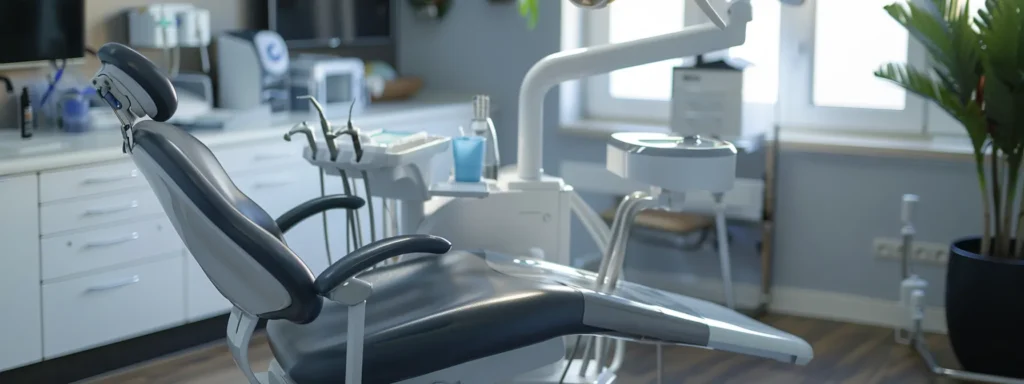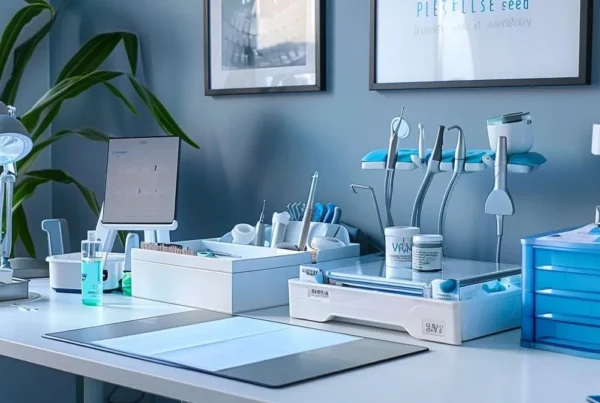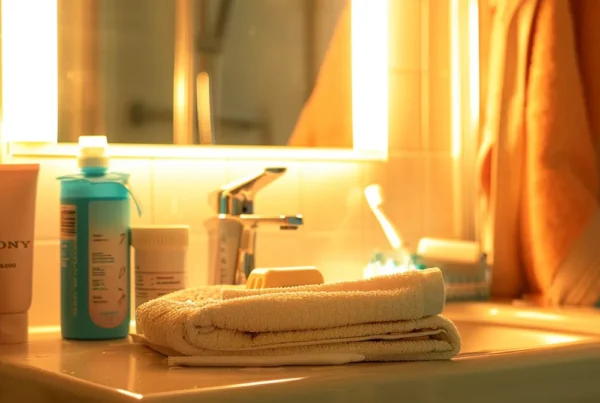Dental veneers are a long-term investment in your smile, but their longevity depends on several crucial factors. Understanding how these elements interact helps patients in Grand Prairie, TX, maintain their veneers and oral health for years to come.
The material used to create your veneers is a primary determinant of their durability. Porcelain veneers, known for their strength and resistance to staining, can last up to 15 years with proper care. In contrast, composite resin veneers generally have a shorter lifespan, ranging from 5 to 8 years, due to their susceptibility to wear and discoloration over time.
Daily care practices also play a pivotal role in how long veneers last. Using non-abrasive toothpaste and a soft-bristled toothbrush helps prevent micro-scratches that could compromise the surface of the veneers. These scratches can lead to plaque accumulation and eventual damage if not addressed.
Finally, regular dental evaluations allow professionals to monitor the condition of your veneers. Early detection of issues like minor chips or bonding failures can prevent more severe complications and avoid complete replacement. Ongoing check-ups are an essential part of any comprehensive veneer care plan.
Recognizing the Need for Veneer Replacement
Knowing when to replace your dental veneers is vital to maintaining both function and aesthetics. While veneers are built to last, they are not immune to the effects of time and wear.
Surface damage such as chips, cracks, or rough edges is a visible indicator that a veneer may be nearing the end of its lifespan. This type of damage can compromise both appearance and tooth protection. Left untreated, it may also contribute to secondary issues like bacterial infiltration and decay.
Changes in your gum line can signal additional problems. When gums recede, they may expose the edges of veneers, making it easier for bacteria to seep in. This exposure can destabilize the veneer and threaten the health of the tooth it covers.
Routine check-ups with your dentist help identify these issues early. Dental professionals can evaluate not only the physical condition of the veneers but also the surrounding tissues. This ongoing monitoring is key to ensuring that any necessary replacements are done before complications arise.
Maintaining Veneer Longevity Through Proactive Care
Protecting your dental veneers starts with proactive habits that extend their functional life and maintain their appearance. At Grand Prairie Family Dental, we teach patients how to create daily routines that support lasting results.
Professional dental visits are the first line of defense against veneer degradation. These appointments allow your dentist to inspect your veneers for early signs of wear, monitor your bite alignment, and ensure the bonding remains secure. Prompt attention to these areas can prevent more invasive repairs later on.
At home, daily care makes a big difference. Use a soft-bristled toothbrush and non-abrasive toothpaste to avoid damaging the veneer surface. Gentle brushing and thorough flossing help remove plaque while maintaining the veneers’ smooth, natural appearance.
We also educate patients about habits and foods that can jeopardize their veneers:
- Avoid biting hard objects like ice or pens, which can cause cracking or dislodging
- Limit consumption of staining foods and beverages such as coffee, red wine, and berries
- Wear a custom night guard if you clench or grind your teeth while sleeping
- Refrain from using your teeth as tools to open packages or bottles
Taking these simple precautions reduces your risk of damage and helps ensure your veneers last as long as possible. A commitment to these practices leads to better outcomes and reduces the need for early replacement.

Timely Consultation for Veneer Assessment and Replacement
Knowing when to seek professional evaluation for your veneers can make all the difference in your dental care plan. Ignoring subtle symptoms may result in unnecessary complications or missed opportunities to extend the life of your restoration.
Common signs that you should contact your dentist include sudden sensitivity to temperature changes, discomfort during chewing, or a noticeable shift in how your teeth align. These symptoms can point to weakening bonds or hidden damage beneath the veneer surface.
Choosing a cosmetic dentist with experience in veneer care is essential for getting the right guidance. These professionals have a trained eye for detecting early issues and can recommend whether repair or replacement is necessary. Working with the right provider ensures a more accurate diagnosis and an effective, customized solution.
Regular consultations are also beneficial for updating your treatment plan. As your oral health changes over time, your care strategy may need to be adjusted. These conversations ensure that your veneers remain in harmony with your overall dental goals.
Ensuring Longevity of Veneers Through Proactive Preventive Care
Prevention is key to maximizing the lifespan of your dental veneers. A strong care strategy includes not just daily hygiene but also consistent oversight from your dental team.
Start with a solid home care routine. Brushing twice a day with non-abrasive toothpaste and using a soft-bristled toothbrush keeps veneer surfaces clean and free from scratches. Daily flossing removes debris and plaque buildup, which helps maintain gum health and veneer adhesion.
Supplement your routine with protective tools like nightguards or mouthguards:
- Nightguards protect against teeth grinding that can wear down or crack veneers
- Athletic mouthguards are ideal for patients involved in contact sports or high-impact activities
- Water flossers can be used alongside traditional floss for more effective plaque removal
- Tongue scrapers help reduce bacteria that could affect both veneers and natural teeth
Incorporating these tools into your daily regimen boosts the effectiveness of your preventive care strategy. It also provides peace of mind knowing your veneers are well protected.
Finally, regular dental appointments are essential for evaluating your veneer condition and oral health. These visits allow your dentist to make timely recommendations, reinforce proper care techniques, and address any minor issues before they become major concerns.
The Importance of Timely Veneer Replacement for Oral Health
Replacing dental veneers at the appropriate time is just as important as caring for them daily. This proactive approach prevents deterioration from affecting your overall oral health and keeps your smile looking its best.
Being proactive means recognizing early signs of veneer failure. Discoloration, looseness, and minor fractures are more than cosmetic flaws, they can lead to serious consequences if not corrected. Patients who monitor their veneers closely and report changes promptly often avoid costly procedures down the road.
Preserving the structural integrity of your smile is another important reason to act quickly. If veneers begin to wear down, they can affect the balance of your bite and place extra strain on surrounding teeth. This imbalance can lead to discomfort and functional problems that affect daily activities like speaking or eating.
Choosing a trusted dental practice like Grand Prairie Family Dental ensures you have the support and resources you need for timely, expert care. Our team is dedicated to making sure each patient feels informed, confident, and equipped to protect their long-term dental investment.
Frequently Asked Questions
How often do dental veneers need to be replaced?
Dental veneers typically last between 10 and 15 years depending on the material used and how well they are cared for. Regular check-ups and maintenance can help maximize their lifespan and ensure early detection of issues.
Can damaged veneers lead to other dental issues?
Yes, damaged veneers can expose the underlying tooth to decay, wear, or infection. Addressing chips, cracks, or bonding failures promptly helps protect both the veneer and the natural tooth beneath it.
Is it possible to prolong the life of my veneers?
Absolutely. Maintaining good oral hygiene, using non-abrasive products, avoiding risky habits, and visiting your dentist regularly can significantly extend the life of your veneers.
Book an appointment with Grand Prairie, TX’s top dentist, Dr. Khademazad, today. It’s the first step to a better smile and increased self-esteem. Call us at 972-988-0900.
Schedule Your Consultation Today!
Grand Prairie Family Dental
972-988-0900
2475 W Pioneer Pkwy






